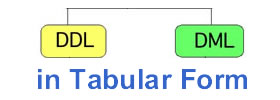Difference between Retailer and Vendor
Key difference: The retailer and vendors are an integral part in the trade cycles but they differ in their functions. A retailer sells the product to the end-users, while a vendor supplies the products.
Retailer is ‘a business or person that sells goods to the consumer, as opposed to a wholesaler or supplier, who normally sells their goods to another business’. They are basically sellers who are at the end position of any business management system. They are direct representative of the consumers, that is, they help the manufacturers to know about the needs and requirements of the consumer.
.jpg) They purchase the products at a competitive price from the suppliers and market them according to their benefits. Generally, they buy small quantity of items from a distributor or a wholesaler in order to gain profit, which would coincide with their business objectives. They are generally shopkeepers, who make the product available to the consumers.
They purchase the products at a competitive price from the suppliers and market them according to their benefits. Generally, they buy small quantity of items from a distributor or a wholesaler in order to gain profit, which would coincide with their business objectives. They are generally shopkeepers, who make the product available to the consumers.
Vendors are said to be suppliers who sell the products directly to the customer. These are generally not employed, either full-time or part-time, by the guarantee and are considered as a hired service.
 They are providers of commodities, so their main motive is to sell and supply. They sell the local items at convenient and affordable rates. When vendors return back the leftover product, they clear their account as they are paid for the product they do sell. They sell the product while retaining their commission or profit percentage, which were fixed beforehand. They are also not subject to compliance requirements, hence the environment is very competitive. Due to this, the vendors provide the services or goods to many different purchasers, who indirectly sell the goods and services for them.
They are providers of commodities, so their main motive is to sell and supply. They sell the local items at convenient and affordable rates. When vendors return back the leftover product, they clear their account as they are paid for the product they do sell. They sell the product while retaining their commission or profit percentage, which were fixed beforehand. They are also not subject to compliance requirements, hence the environment is very competitive. Due to this, the vendors provide the services or goods to many different purchasers, who indirectly sell the goods and services for them.
Comparison between Retailer and Vendor:
|
|
Retailer |
Vendor |
|
Who are they? |
A retailer is a person or business who sells the products or services directly to end customers. |
A vendor is an individuals or firms hired to provide a specific service or product (product purchase or fee-for-service) within their normal business operations |
|
Functions |
Their basic function is to sell the products. |
Their basic function is to supply the products. |
|
Contract base |
There is no such contractual base in case of retailers, as they have their permanently set business. |
Their relation ends within a contractual base, and is not that affecting, but only concerned from a profit point of view. |
|
Product cost |
They sell the product at the recognized and defined rates. |
They are known to sell the products at the affordable and convenient rates. |
|
Account existence |
There is no account strategy among the retailers. |
The vendors account is cleared within the fixed period base. |
Image Courtesy: ecofoilpans.com, netroduction.biz









Add new comment